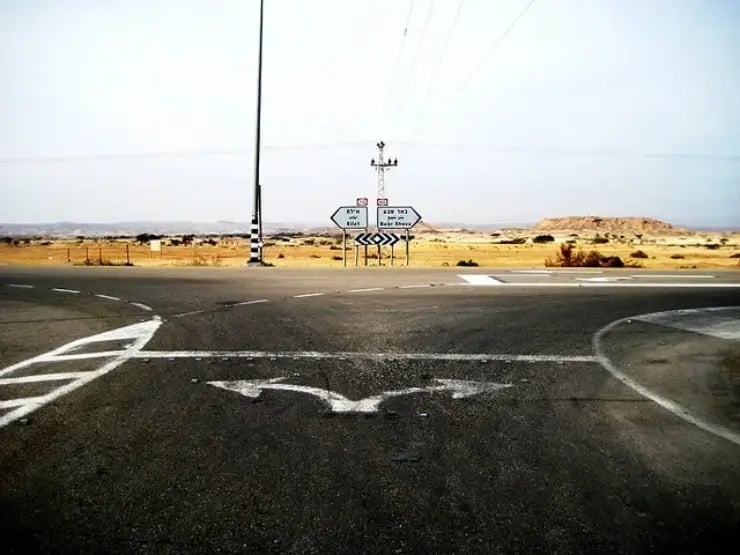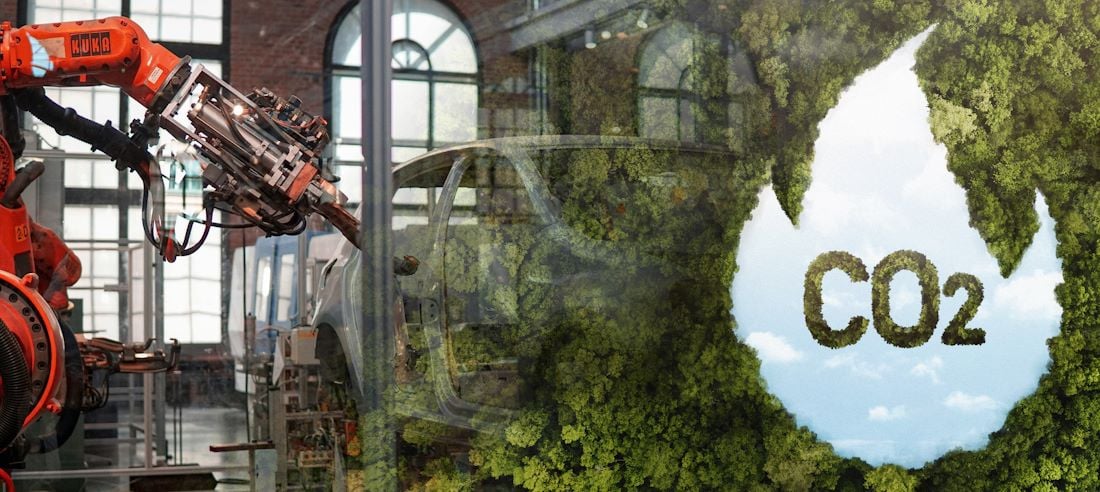When it comes to discussing ways to limit human influence on global warming, the most popular reaction is to pass the buck: So who’s in charge of making the needed substantial changes in the way things run? The Other. Why? Because they pollute more, because they’re more powerful, because they have a historical responsibility, because it’s easier for them… There seem to be more excuses for not acting than there are carbon dioxide molecules in the atmosphere.
“Technology Will Save Us” Say Efficiency Advocates
Even among those who are concerned with the environment and seek a way to increase climate protection, there are two diverging concepts. On the one hand, supporters of efficiency promote a shift in technology towards using more renewable materials and more renewable energy more effectively. They claim that with the help of green technological innovation we can stay in the comfort zone – a growing economy is still the goal, as long as the growth is green.
“Limit Yourself” Proclaim Sufficiency Supporters
On the other hand, there are the fans of sufficiency. In their opinion, green technology is not bad per se, but can never be the sole solution. Only a limited level of personal acquisition can lead to a sustainable way of life, they argue. Sufficiency usually comes with the concept of a post-growth economy. Instead of just questioning the way we achieve our goals (i.e., through technology), we should question our goals entirely. Wouldn’t we be as happy, or even happier, with less stuff, less energy consumption and less money? Many sufficiency supporters criticize the green growth approach for being too short-sighted.
“Combine them!” I say
Efficiency supporters are usually found within the business sphere and, in academia, among the more forward looking economists. In addition, an environmental and resource based economy that accepts real prices for the use of nature is often included as a necessary component for achieving sustainability. The opposing faction, the supporters of a sufficiency strategy, seems to gather around the social sciences and the arts scene. But both factions often seem to forget that only a combination of sufficiency and efficiency will bring hale and heartiness to our maltreated planet.
I was very happy to read the following lines in IFEU’s energy newsletter. IFEU, the Institute for Energy and Environmental Research Heidelberg, apparently shares my belief in this combined approach:
Wir brauchen einen ausgeglichenen Mix aus Erneuerbaren, Effizienz, Kraft-Wärme-Kopplung, nachhaltigem Verhalten und Suffizienz, um die Klimaschutzziele zu erreichen.
Well, yes, that’s German. But don’t worry, I’ll translate for you. It says that if we want to reach our climate protection targets (I figure the ones established by Kyoto as well as the European ones), we need a well-balanced mix of renewable energy, efficiency, co-generation, sustainable behavior and sufficiency. This holistic conclusion was drawn at a side event at July’s wind energy congress in Bonn, Germany.
What struck me most about the sentence is its underlying implication. Basically, there is no more passing the buck. There can only be one serious and pragmatic approach to face global warming: we need all of the three sustainability strategies, we need all parties to act and we also need both the technological innovations and a political framework that improves efficiency. But that alone won’t be enough – we also need to change our personal behavior. The integration of man-made material flow with natural cycles is called consistency and this strategy for sustainability requires both technological and behavioral change. In support of this, and making the third sustainability strategy’s point, renewable power generation alone is not going to save our world. Every single one of us should learn to live with less. What? You’ve heard that before? Well, the concept of sufficiency is all about this and its supporters are very right when they say finding a new understanding of modesty can increase everyone’s quality of life, especially in the industrial nations.
Who has the Most Effective Measures? Climate Cities Benchmark
Let me illustrate my point with an example from the above mentioned presentation (PDF). It concerns the climate cities benchmark project, an initiative that unites 14 cities in Germany, 14 in the US and 40 in Japan in an attempt to monitor and inspire public climate protection efforts. The PDF is bursting with interesting diagrams on household energy consumption and displays concrete examples of how municipalities can reduce their populations carbon emissions. Yet my initial plea that we unite the efficiency and sufficiency strategies still begs one big question: how can they go hand in hand?
Slide 7 introduces “low exergy systems”, for instance. What’s that? Wikipedia says the term originates in thermodynamics and describes exergy as “the energy that is available to be used”. It sounds a little magical, but instead of generating new heat, it is also possible to re-use heat that has already been generated for some other use. The presentation explains that, in theory, energy demand for HVAC (heating, ventilation and air conditioning) should be low since the required final room temperature is relatively constant. As slide 19 states, multiple use of heat definitely makes sense and saves energy:
Most of the energy in the building sector is used to maintain constant room temperatures of around 20°C. Because of the required low temperature levels for the heating and cooling of indoor spaces, the quality of the energy demanded for applications in room conditioning is naturally low. In most cases, however, this low quality energy demand is satisfied with high quality energy sources, such as fossil fuels or electricity. To make energy use in buildings even more efficient and to open up the possibility of using renewable energy sources, and supplying energy with low quality, we need new low temperature heating and cooling systems.
So we learn that in order to save energy in the building sector, well-insulated buildings are not enough. In order to achieve a far higher level of HVAC efficiency, a new technology able to use “low quality energy” is required – a perfect example of the efficiency strategy. However, an efficient heating system most definitely can result in more lavish use – “Now, since I have the new environmentally friendly heating system, I don’t bother to switch it off when I leave the house anymore. It’s just so efficient, you know?”. There it is, the infamous rebound effect. It only makes sense if users make the necessary personal changes, too, no matter how efficient the heating system. A room temperature of 18-20° C should be enough for the winter, and 23-25° C is perfectly alright in summer. Freezing cold shopping malls on the hottest summer days and sauna-like living rooms in winter? I agree with the sufficiency supporters: in light of global warming, such excess is nothing less than totally irresponsible.
Temperature control is just one of many examples. Wherever you see room for improvement, you will see that technological innovation is best accompanied by conscious and sound use. Whenever you take a critical look at your own behavior, you can come up with an improved technological system that will foster further savings. In a period of history where many of the former self-sustaining, agriculturally dominated parts of the world strive for extensive industrialization, it is of vital importance to conclude the theoretical debate on efficiency and sufficiency once and for all. There is only one pragmatic conclusion: We need both!
Further Reading
- Reinhard Loske: Effizienz versus Suffizienz: Das grüne Schisma. Blätter für deutsche und internationale Politik 8/2011, Seite 63-70, in German, PDF available for purchase online
- Hans Hertle, Katharina Schächtele (2008): Who ́s ahead? Climate Cities Benchmark in Japan, U.S. and Germany. Institute for Energy and Environmental Research Heidelberg, PDF available here
- knowtheflow: Better, Different, Less – Green Economy Revisited
- knowtheflow: 6 Options to Maintain Current Lifestyles with Far Less Raw Materials: “With Both Eyes Open”
- knowtheflow: 7 Measures for Efficient Climate Control on the Factory Floor
- knowtheflow: To Harvest Green Business, Feed Eco Incentives to the Decision Makers
Article image by sachs08 (CC BY 2.0) shows a fork in the road in Israel





